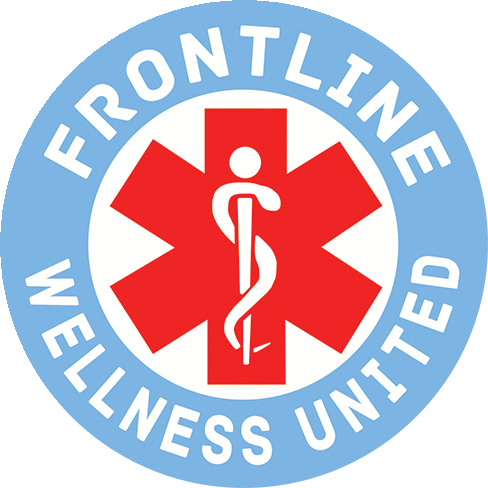Frontline Wellness United grew out of the three resistance camps that sprang up in opposition to the Dakota Access Pipeline in North Dakota in the United States from April 2016 through February 2017. At their peak, the camps hosted as many as 8,500 people of all ages, from as many as 300 tribal groups in the U.S., and residents of 20 or more nations.
The camps were set up along the Cannonball River, near the Standing Rock Sioux Indian Reservation, near the border of South Dakota. An ad-hoc medical system was created to serve the three camps, which presented very unique challenges. In some ways, the experience of working there was similar to a community caught in the throes of a low-grade disaster that operated under extreme duress for more than four months.
Storm winds up to 70mph, a near record snowfall, and temperatures that dropped as low as -21° Fahrenheit exacerbated problems with a poor (and sometimes non-existent) water supply, inadequate shelter, poor sanitation and hygiene facilities, with ‘residents’ unprepared for severe weather on the high plains.
Pipeline protestors were frequently maced, arrested, and injured in confrontations with police. Racial conflict and violence within the camps, the stress of surviving in the harsh environment, and a lack of organized support systems and public-health standards placed people at enormous risk. Healthcare providers treated burn victims, ax wounds, broken bones and other forms of physical and emotional trauma, as well as communicable diseases and mental-health disorders.
Three children were born in the camps, during fall and winter. Many elderly and medically compromised residents joined the camps, and required daily care to sustain their health. As the weather turned progressively worse, the number of burn victims, hypothermia victims, and cold-and-flu sufferers climbed, but conflicts within the medical system blocked any strategic effort to respond to the crisis.
Formal vetting of providers was seen as an ‘authoritarian’ or ‘colonial’ enterprise, while trained providers saw it as long-accepted means of ensuring patient safety. It was a system that attracted very dedicated and driven healthcare workers, but also attracted those who wanted practice medicine without the authority, credentials or ability to do so safely. Frontline grew out the chaos that characterized that system.
We believe that those who work on behalf of social-and-environmental justice deserve a high standard of care. We believe that communities working in opposition to racism, environmental destruction and other forms of injustice must be sustained. To do that—to be responsive to those needs at any scale, if we’re to protect the health and well-being of those communities—requires a high degree of organization, a proactive and planned approach to providing care, and a high degree of competency. It requires creating an environment that is safe for both patients and providers.
This is what Frontline Wellness United is, and what Frontline does. We create and staff highly competent medical and wellness systems dedicated to the protection of those who are working to protect us all.


